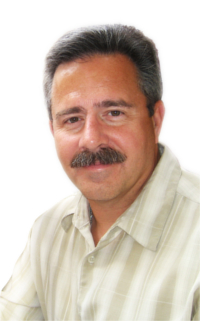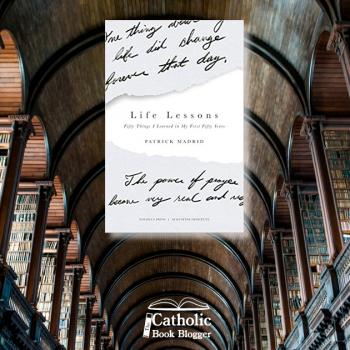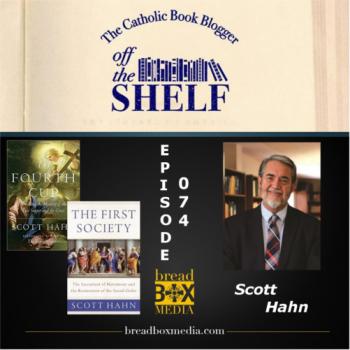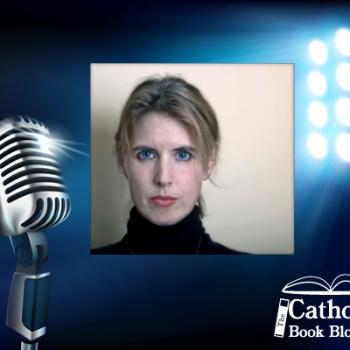 PETE: After completing your book I have to say that in my opinion this is a must read for newly converted and those going through the RCIA program….it’s that solid in facts. Who was your target audience for this book?
PETE: After completing your book I have to say that in my opinion this is a must read for newly converted and those going through the RCIA program….it’s that solid in facts. Who was your target audience for this book?
PATRICK MADRID: Thanks. All authors like to think their books are perfect for everyone, and I’m no different in that regard but, Why Be Catholic? is primarily intended for skeptics. The “skeptic” category encompasses both non-Catholics as well as Catholics who are a bit wobbly or unsure about some aspects of the Catholic Church. My goal with this book was to make the case for the Catholic Church in a non-confrontational, non-polemical, and non-judgmental way so skeptics can evaluate the evidence without feeling they’re being “preached at” or condemned.
One way to reach an audience like that is by way of analogies, similes, and metaphors — explaining things by showing similarities and the logical inferences we can draw from those similarities. This is an effective way of reaching someone who is not disposed to accept or believe a given truth when it’s simply stated as such. Especially nowadays, in an era of ever-decreasing attention spans and ever increasing uncertainty and questioning, we have to reach people in ways that will catalyze their critical thinking skills and get them to go beyond unfounded assumptions and thought-stopping clichés that often masquerade as “reasons” for dismissing a new idea.
For example, in the chapter on the Mass and the Eucharist (“Soul Food”), I use the analogy of a symphony orchestra and point out that, in order to do what orchestras are supposed to do, i.e., play music, its musicians must have musical instruments with which to make music. No instruments = no music. Imagine the absurdity of an orchestra going around to packed concert halls and describing music to the audience. The parallels here are: The Church is an “orchestra” whose “conductor,” Jesus Christ, did give the musicians “musical instruments,” i.e., the Mass, which enables them to “play music,” i.e., confect the Holy Eucharist. Rather than simply tell people about Jesus, as important as that surely is, the Catholic Church can actually help people have the most intimate personal relationship with Him possible in and through the Holy Eucharist.
No analogy, simile, or metaphor is perfect, but when valid they can be immensely helpful. Which is why, I believe, the most common reaction I’ve gotten from readers in my “target audience” for Why Be Catholic? is an appreciation for the book’s use of analogies which, they say, enabled them to see and consider aspects of the Catholic Church, previously disagreeable to them, in a new light.
PETE: In the book you give ten reasons why you feel Catholicism is the answer to many issues people face today. Let’s take it one step further. Of those ten……what is the number one reason and why?
PATRICK MADRID: For me, the number one reason, of which the biblical and historical evidence have convinced me, is that the Catholic Church is the Church established by Jesus Christ. Everything else flows from that fact: the truth of its doctrines, etc. Everything for me hinges on this first reality. I do my best in Why Be Catholic? to lay out the major elements of that evidence that I personally found so compelling.
PETE: You have spent your entire career in apologetics and this book is an extension of that work. What do you most enjoy about the field? What is your least favorite aspect of it?
PATRICK MADRID: That’s an excellent two-part question to which I’m not sure I have a ready answer, even after nearly 30 years of working in this field! Truth is beautiful and has a gravitational pull all its own, even when it’s difficult to understand or make part of one’s life (a moral truth, for example). So I guess what I love most about working in apologetics is the opportunities it affords me to seek the truth, study it, think about it, do my best to assimilate it into my own mind and heart, and then attempt to share that truth with others. I really do love all of that, mainly because it can help me become a better person and more mature Christian. Perhaps my least favorite aspect of this work is the frustration and sadness that sometimes arises when I encounter people who, out of anger, fear, pride, or some other issue, are not willing to even just consider the evidence that could change their mind and their life for the better if they’d just give it a chance.
PETE: For those with an interest in apologetics, how does one start out? How did you get involved?
PATRICK MADRID: For me, it was a completely unexpected series of fortunate events that unfolded when I was in my mid-20s, after I had gone through a cathartic and profound reconversion of my heart to Jesus Christ. I was born and raised Catholic and always loved and trusted the Church, and never was even slightly tempted to walk away from it. But, in my youth and young adulthood, like many young men, I dabbled in the world and the flesh (though never the devil) in ways that kept me “compartmentalized” as a Catholic, not 100% committed to Christ because of the little compartments of sin and worldly attitudes that I allowed to fragment my Catholic identity. Well, after a year-long process of prayer and conversion, much of it spent before the Blessed Sacrament and praying the rosary, I decided to quit my job and “put out into the deep” to discover what God wanted me to do with my life. (I was married with kids and a mortgage and car payment at that time!) Turns out, I didn’t have to wait long for the Lord’s answer. The very next day, my friend, Karl Keating, called me and asked me to join Catholic Answers, which he had just taken from a part-time apologetics hobby of his (albeit a very successful one) to a full-time apostolate. The amazing thing, as I look back on it, is that when he first asked me to join up with him at Catholic Answers, I turned him down! I didn’t then imagine that, as much as I enjoyed apologetics, that apologetics could ever be what God was calling me to do. The good news is that, as my lovely wife reminded me that we had a house payment due in a few weeks and the kids needed to eat, that I shouldn’t decline Karl’s offer. (Nancy was rather more direct in saying so, of course), so I accepted the offer and never looked back. That happened in early 1988, January if memory serves and, thanks be to God, I’ve never looked back. That’s how I got my start in apologetics. A quirky and totally unlikely way to go about it.
My recommendations to others who desire to get into the work of apologetics in a serious, even full-time way, would include: Read voraciously Scripture, Church history, patristics, theology and philosophy. This amassing of knowledge is crucial and, without it, one cannot be very effective in a full-time, professional sense. Practice your apologetics techniques. Listen to Catholic radio shows such as “Right Here, Right Now” (my show, which airs M-F at 4:00 ET), “Open Line” and “Catholic Answers Live.” Get CDs of apologetics debates and study them. Learn by doing. Don’t be afraid to strike up friendly conversations about the Faith with those who oppose it. Learn from them what their objections are. That’s the best way to understand better how to respond effectively to those objections. Pray a lot. Seek the Lord’s guidance on what else you can do to become more involved in apologetics work, whether just personally or in a more formal capacity at your parish, diocese, or some other institutional setting. For those who desire to go in that direction, I also recommend obtaining a degree, first in philosophy, and then in theology with a concentration in apologetics. Philosophy is to theology what math is to engineering. Happily, this option is now available to everyone, everywhere through Holy Apostles College and Seminary’s (fully accredited) distance degree programs in philosophy and theology (check them out at www.holyapostles.edu). I am privileged to teach graduate courses in apologetics as an adjunct professor for Holy Apostles.
PETE: What other books, including your own, would you recommend for those look for deeper answers to their questions on the Catholic faith?
PATRICK MADRID: In addition to Why Be Catholic? I think my books Envoy for Christ: 25 Years as a Catholic Apologist (Servant Books), On a Mission: Lessons from Saint Francis de Sales (Servant), Search and Rescue (Sophia Institute Press), Answer Me This (Our Sunday Visitor), and Pope Fiction (Basilica Press) would all be useful. Of course, many other authors have written many excellent books that are also quite important for aspiring apologists. Modern authors who come to mind are Karl Keating, Scott Hahn, Tim Staples, Steve Ray, Peter Kreeft, and Frank Sheed (to name just a few). And of course, the works of earlier Catholic apologists such as Blessed John Henry Newman, Saint Robert Bellarmine, Saint Francis de Sales, and Saint Augustine are all mandatory reading too, in my estimation.
PETE: Are there any other book projects you are currently working on that you can share with us?
PATRICK MADRID: Yes, I just finished a new book for Servant called Now What? A Guide for New (and not so New) Catholics, which is due out in the spring of 2015. And Sophia Institute Press will release the American edition of my critique of the Protestant principle of sola Scriptura, seen through the lens of the scholarship of the late Cardinal Yves Congar, O.P. That book is called Scripture and Tradition in the Church and should be available by September 1st. I’m also finishing How to Do Apologetics for Our Sunday Visitor and a book on life lessons for Ignatius Press. Then, I’m going to lie down and take a nap.
PETE: Time for my signature ending question. This is a blog about books. What is currently on your bookshelf to read?
PATRICK MADRID: You’re a man after my own heart! I’m always reading 3 or 4 books simultaneously, it seems. The ones I’m reading right now are The Singularity Is Near (Ray Kurzweil), The General Councils (Christopher Bellitto), Chronicle of the Conquest of Grenada (Washington Irving), and Is God a Moral Monster? (Paul Copan).
Thank you very much for allowing me to do this interview with you, and thank you kindly for reviewing Why Be Catholic?
_________________________________________________________________________________________________________











